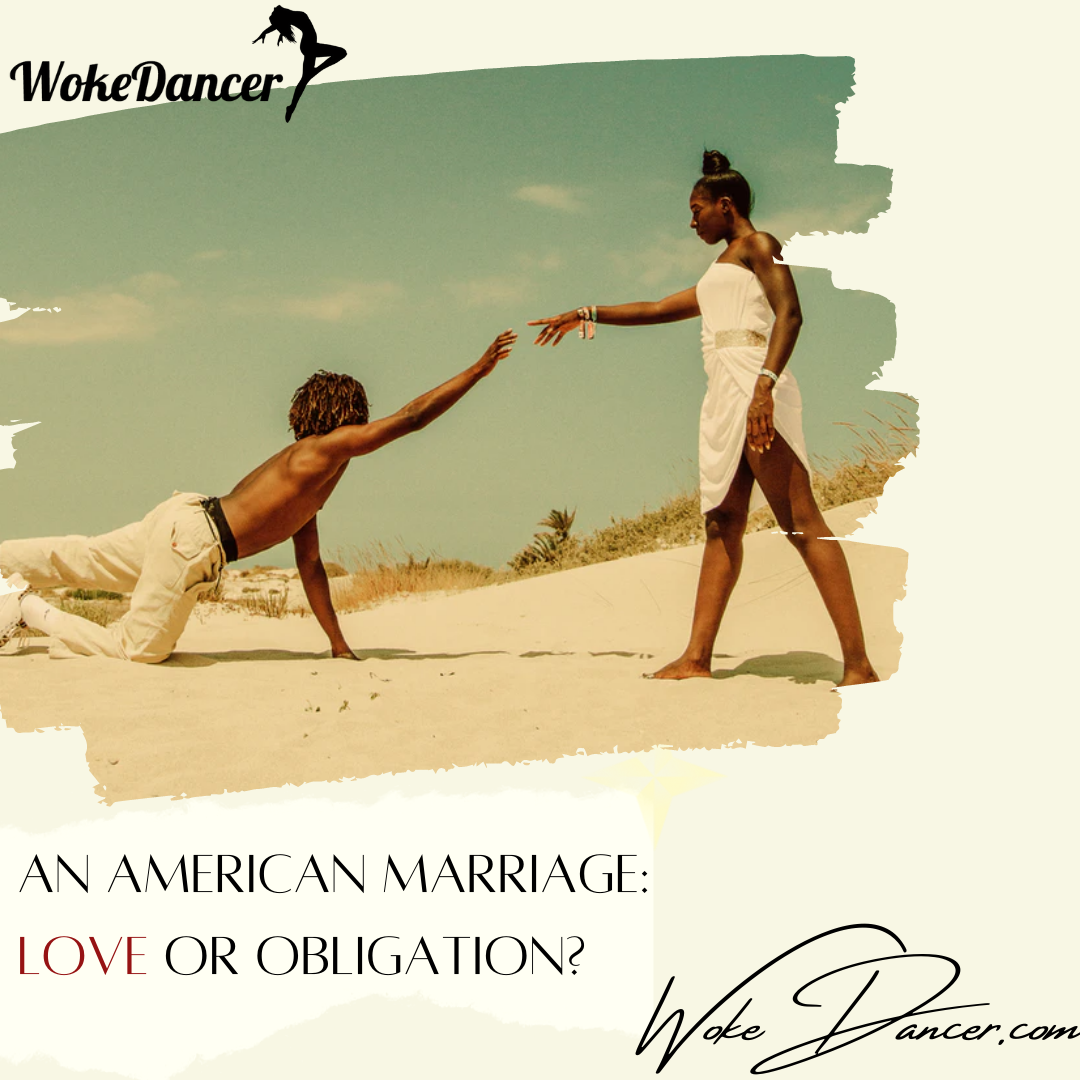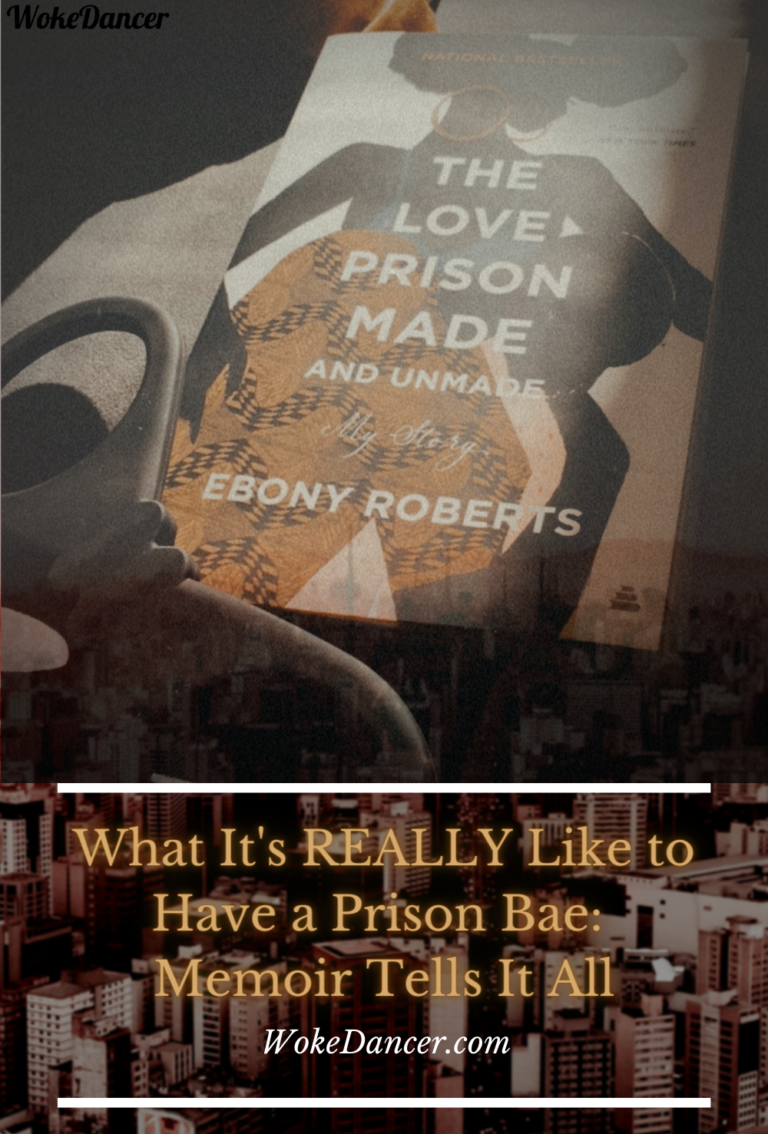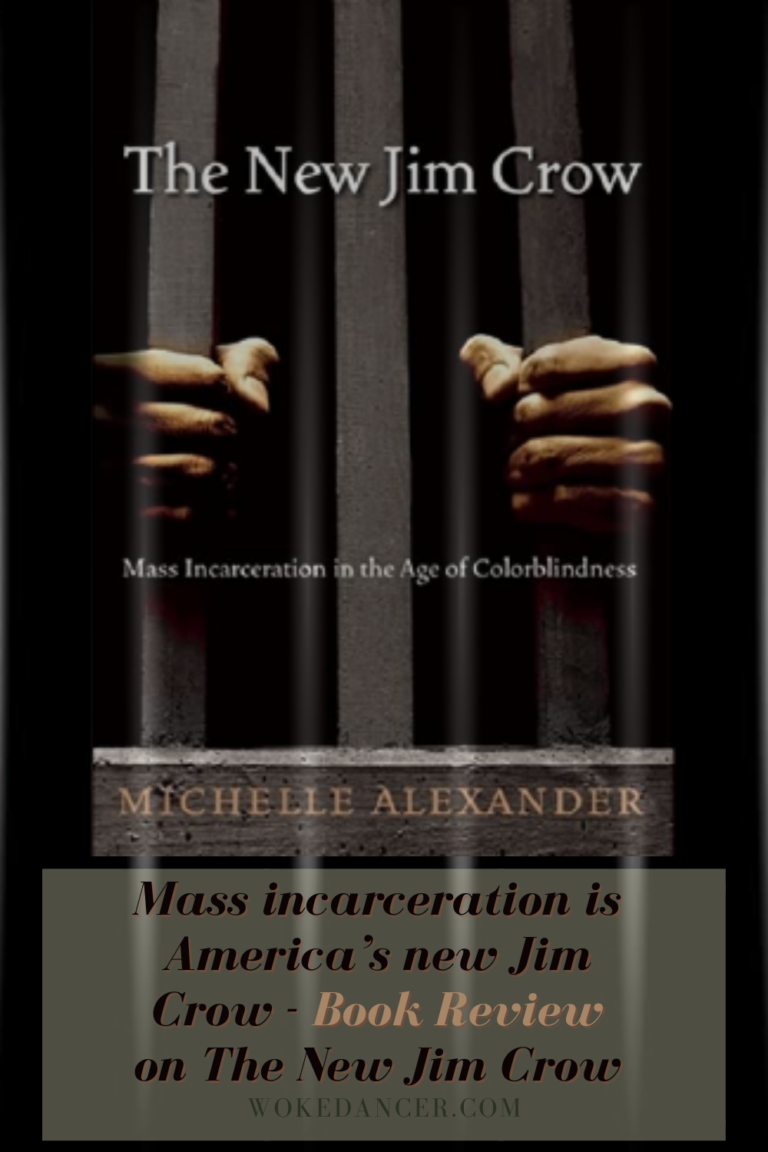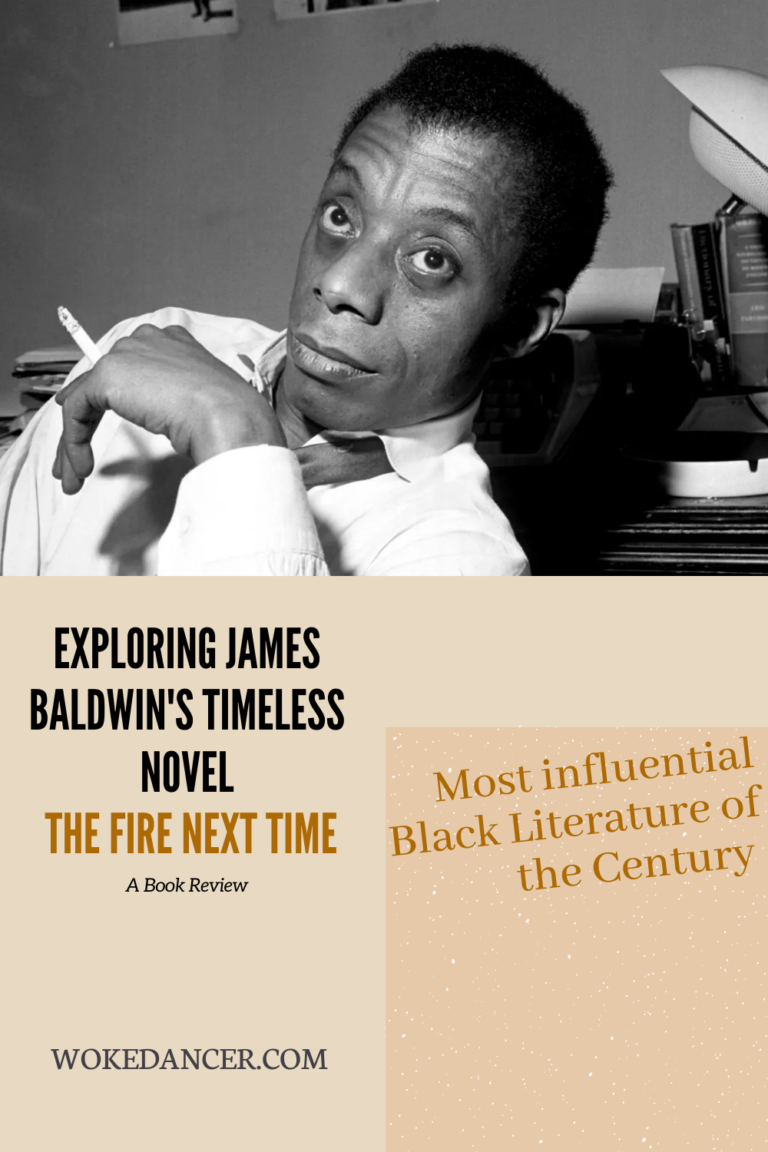
An American Marriage: Love or obligation?
An American Marriage is a contemplation of when love becomes obligation
Spoilers included

Are Black people just living their lives in vain? What I mean is – is there a possibility that we can do everything “right” and still end up with the shorter end of the stick as a collective? Is this life in America a life where fate has been decided and the joke is on us? An American Marriage is a contemplation of these questions.
An American Marriage starts in the boisterous perspective of a young businessman, Roy. He is confident in his abilities to transform his life from small-town Louisiana boy to full-blown Corporate American man – while Black. The cruel thing of this work is that it actually happens. He leaves the South, he works in Corporate America, and he finds the wife of his dreams. A wife whom he would like to give everything to. What he calls “setting her down.” He wants to fund her dreams, but more importantly, for her to have his children to carry on his legacy.
There’s almost an obsession with Roy wanting to do things “right” with his children. He wants to release the idea that struggle has to be part of the next generation. Shouldn’t it be better than before? Isn’t this what we were fighting for? These are the questions that preclude a most horrific premise: a Black man going to prison for a crime he did not commit after only a year and half of marriage with his beloved Celestial.
Marriage Before Incarceration
At first, their marriage appears rocky; he’s a womanizer and she’s a self-fulfilling artist. They are unable to sustain the needs of one another. I think Jones was trying to showcase that without the characters acknowledging how incompatible this made them. Our desires for ourselves do matter. When you include someone else into your life, you have to understand whether or not those desires are compatible, as well.
For them, it started out as a feeling; a desire to be held, a desire to feel safe and wanted. The feeling of lust and the ideal Black man. In this book, the ideal was “tall, dark, and handsome,” and Roy was all of these things. “Things would be different this time,” Celestial said on her wedding day to Roy.
The Real Antagonist
When you’re Black in America, it really doesn’t matter how many things you got “right” – going to college, getting a high-paying job, getting a business, getting married and starting a family – whatever the hell right even is – because no one is keeping score. The American government is not keeping score, because they’ve already filed against the Black man and woman. All it takes is one instant for your entire existence to have meant absolutely nothing. The government serves as a key antagonist in An American Marriage.
“He was like a piece of clay that needed to be molded by the system once he was incarcerated.”
What Roy demonstrates to the reader is that he is an insecure man who seeks to prove himself. And worse, to show what a man is. This turns a disastrous situation into a grave one.
Roy was victimized, but also felt like a victim his whole life while believing his wife Celestial and her family “had it easy.” Even though he had “everything he needed, and nothing less.” There is a little undertone of pride inside of him. He wants to be able to give his wife everything she’s used to, and not let her parents do it. Because he’s the “man,” but to me he adopted age-old “country” principles while denying that he’s “country” in the first place. The irony is astounding.
However, his incarceration not only amplified his feelings of inadequacy, but his psyche literally regressed because of his view of himself before he went inside. He was like a piece of clay that needed to be molded by the system once he was incarcerated. That is a dangerous position to be in.
His innocence coupled with his lowly feelings created a deep-rooted sense of entitlement. That entitlement led to him to refuse accountability. He began to believe that only his needs mattered. His situation caused him to believe that there were no possible ways that anyone could have it worse than him, which this is simply not true. (Look at third world prisons, for example). This mentality nearly erased his empathy, the trait that makes us human. He regressed. Regressed straight into utter survival, high stress, and deep pain from the very fact that he never should’ve been there in the first place.
“Even if the American government plays favorites, life does not.”
But the thing is – he is there, and as a man he should’ve dealt with that. Instead, he blamed the ones he loved and didn’t once acknowledge that he was in pain. The system is to blame, but what is there to be done about that? He experienced excruciating pain, and kept trying to justify it by continuing a relationship that had no plans on working. Prison relationships with a successful spouse will not work (unless you’ve already been married for at least ten years, maybe).
Even if the American government plays favorites, life does not. When he was wrongfully convicted of rape, it was as if he believed he could no longer be wrong about anything else: his relationship, him cheating when he left prison, his lifestyle. This victimhood caused him to believe that he deserved what life had to offer him after prison without really working for it. Because he “need, need, need” – as he stated in his letters – but had nothing to give.
The Woman “Behind” the Man in An American Marriage
Then there is Celestial, the woman seemingly behind the man. But how can a woman love an insecure man? Or a man that can no longer understand you? All of Roy’s deepest desires to take care of her were shattered the moment that sentence arose. But what if Celestial never wanted that in the first place?
There is a possibility in this story that this newfound situation – although heartbreaking – actually saved them from a toxic marriage. After all, they couldn’t communicate openly and were very passive-aggressive, hyper-sensitive, had poor life path alignment, and their sexual chemistry was the only thing holding their marriage together. And that was only barely doing it.
“Even with the limitations of pen to paper, there was no love in those words.”
For what it’s worth, it was only through letters that the relationship fell apart and their poor communication showed itself. Even with the limitations of pen to paper, there was no love in those words. There was a dismissiveness even between the other opening up and trying to be vulnerable. The unfortunate reality is that they became shadows of themselves to the other in the process. These letters became almost like journal entries rather than the only source of communication that was meant to hold the relationship together.
Nothing you can say in a letter can replace physical touch nor equally yoked within your life. I believe that Celestial falling for her childhood best friend Andre not even a few years into her husband’s prison sentence shows that marriage is more wanting a marriage to work with a specific person. You have to make it work. This is not to say that I believed Celestial was selfish for leaving, quite the contrary. I do, however, believe she took the easy way out when she had other options. (i.e. tell him in person during a visit, give a clearer reason, be open and honest about her feelings for another man). And most importantly, to sign the divorce papers for a clean break – if this is what she actually wanted.
“When you are separated to this degree with no hope for your future, one partner cannot expect to put their lives on hold for the other.”
When you are separated to this degree with no hope for your future, one partner cannot expect to put their lives on hold for the other. That’s selfish to expect that out of a partner. It goes beyond sex, because how can a couple be married if one is not present? Mentally, spiritually, emotionally, and physically? Prison erases those possibilities.
Celestial shouldn’t have been ashamed to admit that she fell for a man at the time she needed one the most. She went into psychosis thinking and worrying about Roy, and made her art in his likeness obsessively to try to feel closer to him. I do not believe her emotional trauma in this situation should be skimmed over. She suffered the same feelings of powerlessness Roy felt physically in a psychological and emotional way. She stayed with him the first three years of his sentence. And did absolutely everything possible: put money on his books, visit, pay for his lawyer fees, and send him letters regularly. And it still wasn’t enough.
When she did stay with him initially, there was a part of her that obviously did not want to be there. Her career took off, but her husband was still wrongfully incarcerated. It’s fair to want to move on with your life after doing every possible thing and still feeling alone. It would’ve helped if she realized Roy didn’t have the luxury to forget. And it would’ve done Roy some good to realize that what happened – happened to him and not Celestial and she has the right to do what’s best for her. At the end of the day, she did not get placed in that cell, so why should she have to be a prisoner too?
The Unspoken of This Marriage: An Obligation of Guilt
Her staying married to him – even after getting separated – was an obligation of guilt. She felt guilty about falling for another man, for Roy getting wrongfully incarcerated in the first place, and for her life continuing while Roy’s was destroyed.
Truly, I believe she stayed married even while being separated and seeing Andre because she knew that once Roy got out, he’d need someone: her. Because she was married – although having relations – there was a part of her that was still willing to relinquish her happiness to ensure Roy’s safety and peace of mind. This was shown subtly and almost tragically in the end when she almost stayed with Roy after he destroyed her most prized childhood possession and heirloom, broke into her house unannounced, and nearly forced her into intercourse. He can do no wrong though… right?
Mental Health After Prison – Women as a Man’s Sanctuary and Therapy
The lack of mental health care after prison should also be addressed, because his reliance on a woman to “nurse him back to health” is contrived and cannot possibly address the psychological and physical damage that was done to him. He nearly committed suicide after their showdown. At that point, Celestial’s hands were tied; she had to stay with him, regardless if she was in love and wanted to be with someone else.
Prison wives are not martyrs for their husbands, and they shouldn’t have to be. At what point, is Celestial allowed to truly be happy? And at what point, how can the wrong on Roy’s life be righted again? That’s for Roy to decide, and it isn’t Celestial’s burden to bear.
Love, or obligation? The one you love, or your marriage?
Side Note
The most obvious choice for Celestial is Andre because she’s known him since they were bathing as babies, and she barely knew Roy before he went inside, so how could she possibly know the man that was released?
However, Andre was too much of a “nice guy” to me. I believe he was hoping the fact Roy would be incarcerated for 12 years instead of five so he could build with Celestial. It’s just the fact that at Celestial’s wedding to Roy, Andre wanted her, and didn’t object. Celestial’s father probably would’ve respected him more for objecting rather than waiting until Roy was down and out. Andre was cowardly. He knew her for 30 years before she got married, and still couldn’t make a move. I believe Andre used Celestial at a low moment to profess his true love when it was too late. Andre was supposed to be Roy’s “best man,” but he was always going to be Celestial’s “best friend.”
An American Marriage by Tayari Jones can be purchased here.
Tags: An American marriage, marriage, Black love, marriage for Black American couples
Photo by Houcine Ncib on Unsplash
https://www.pinterest.com/pin/669769775837143126/



Comments (1)
A Musing on a Black Fantasy World and Our Humanness
August 12, 2021 at 4:11 pm
[…] Similar analysis and rhetoric on other books here. […]